Looking back at 2024: Notable IT events
Looking back at 2024: Vietnam ICT Press Club announces 10 typical information technology events in 2024.
- Turn off 2G waves
- Parliament passes Data Law
- Biometrics to fight online fraud
- Commercializing 5G
- Merging the Ministry of Information and Communications and Science and Technology
- National data strategy
- Digital Infrastructure Strategy
- Decree on management and use of Internet services
- Semiconductor industry development strategy
- NVIDIA opens two AI research centers
Turn off 2G waves
According to the National Digital Transformation Program to 2025, Vietnam aims to build a digital society and narrow the digital gap by popularizing 4G/5G mobile network services and smartphones by 2025, moving towards universalizing 5G mobile network services by 2030.
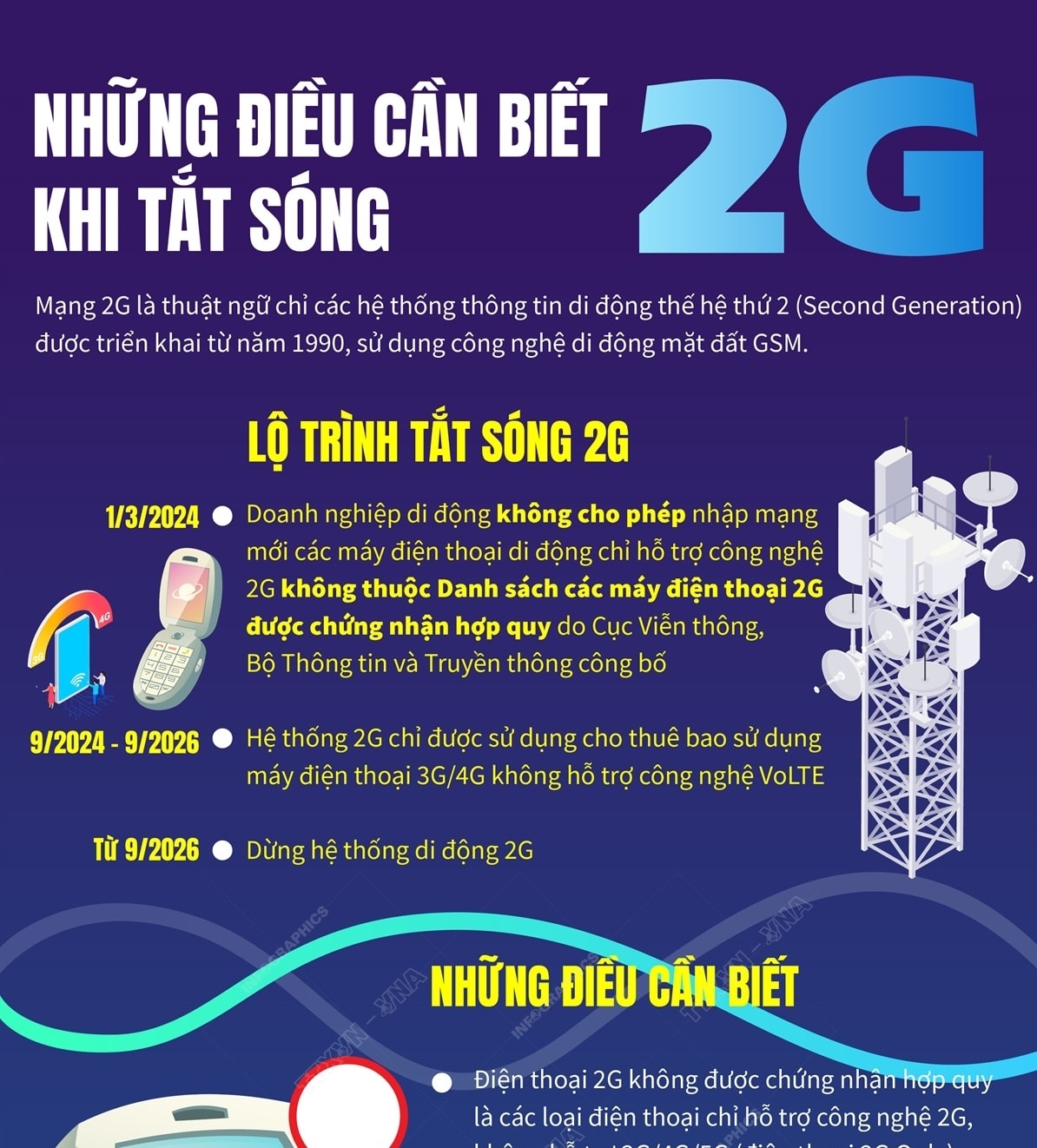
At 0:00 on October 16, network operators in Vietnam completed the shutdown of 2G waves, switching all mobile devices to operate on the 4G platform. In the first 10 months of 2024, approximately 18 million 2G subscribers were converted to 4G, with a large proportion switching to using smartphones1. This helps people deploy the use of digital services, becoming digital citizens of the new era.
These figures show the success in implementing the 2G shutdown roadmap of the Ministry of Information and Communications, localities and telecommunications enterprises. This is an important milestone for Vietnam to move closer to the goal of universalizing 4G and 5G, promoting the digital economy and ensuring that no one is left behind in the national digital transformation process.
Parliament passes Data Law
On November 30, the Vietnamese National Assembly passed the Data Law with 94.15% of the delegates in favor; the law will take effect from July 1, 2025. This law stipulates the establishment and operation of the National General Database through the National Data Center, under the management of the Ministry of Public Security. The law also regulates the transfer and processing of data across borders.

Agencies, organizations and individuals are free to transfer data from abroad to Vietnam and process foreign data in Vietnam, and their legitimate rights and interests are protected by the State in accordance with the provisions of law. However, the transfer of data from Vietnam to foreign countries, especially core and important data, will be tightened and require approval from competent authorities.
In addition, the Data Law also regulates the provision of data to State agencies in cases such as responding to emergencies, disasters, riot prevention, and terrorism. Organizations and individuals must provide data upon request from competent authorities without the consent of the data subject.
The Data Law is expected to establish a data market, promote digital transformation in industries and sectors of the economy, and change the way of communication between state agencies and organizations and individuals in the digital environment.
Biometrics to fight online fraud
In 2024, biometric authentication will become an important solution in the banking industry to combat online fraud. After half a year of implementation, the results of biometric authentication have initiated a long-term strategy to ensure safety and security in online payments and bank cards.
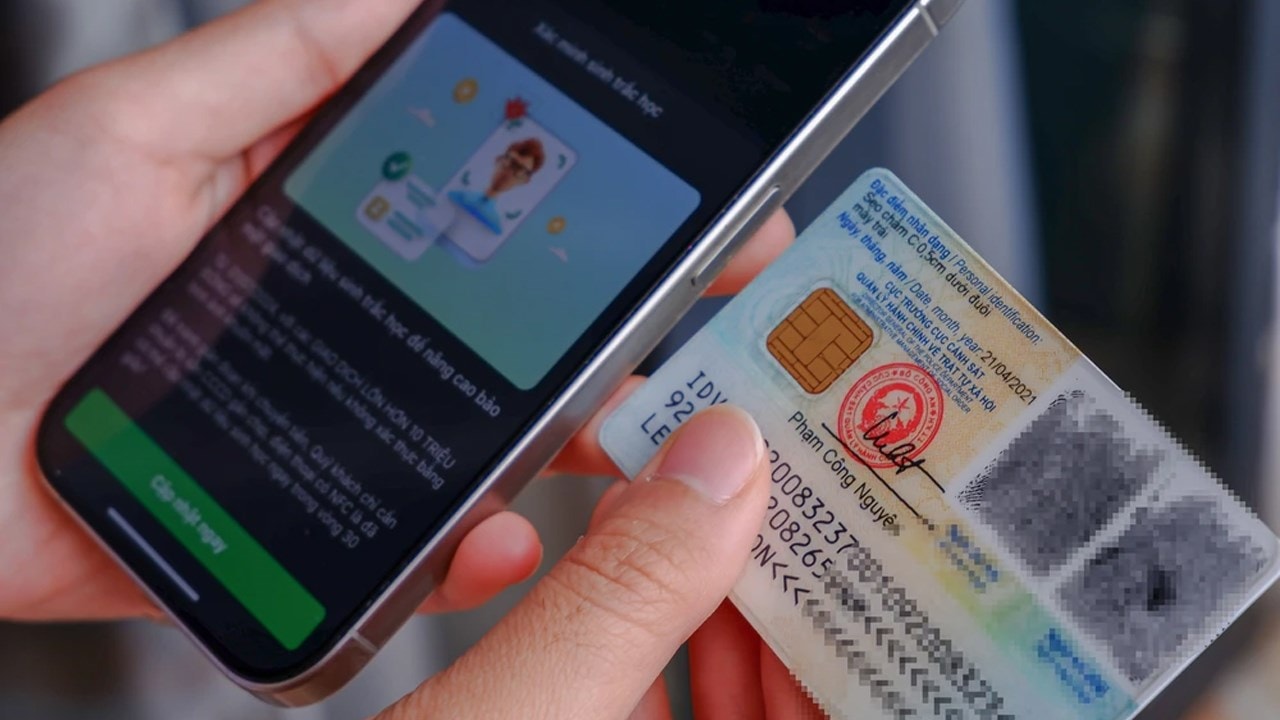
According to the State Bank's regulations, from July 1, individual electronic transactions with a value of over VND10 million or a total daily payment value exceeding VND20 million must apply biometric authentication measures. By early July 2024, 16.6 million customer accounts had been compared with biometric data of the Ministry of Public Security.
Reports from credit institutions show that after more than 3 months of implementing biometric authentication, the number of fraud cases decreased by 50%, the number of accounts receiving fraudulent money decreased by over 70% compared to the average of 7 months in 2024. Notably, some units did not have any fraud cases in August and September.
Since the beginning of October 2024, many banks such as Agribank, Vietcombank, VietinBank, BIDV, VPBank, Sacombank, SHB, TPBank, Nam A Bank, VietBank, Oceanbank, Eximbank have required customers to update biometric information and identification documents to ensure the authenticity of the account. Some banks are also open outside of business hours to support biometric updates.
According to the State Bank's regulations, from January 1, 2025, account holders who have not completed updating their biometric information will not be able to conduct online transactions; accounts that have not been biometrically authenticated will only be provided with counter services. This not only ensures security but also strengthens customers' trust in banking transactions.
Commercializing 5G
On October 15, Viettel officially commercialized 5G, covering 100% of the capitals of 63 provinces and cities, industrial parks, tourist areas, seaports, airports, hospitals and universities. On December 20, VNPT Group also announced the provision of VinaPhone 5G service with super-fast speed and superior experience, aiming for wider coverage in 2025 and soon reaching 85% of the population.
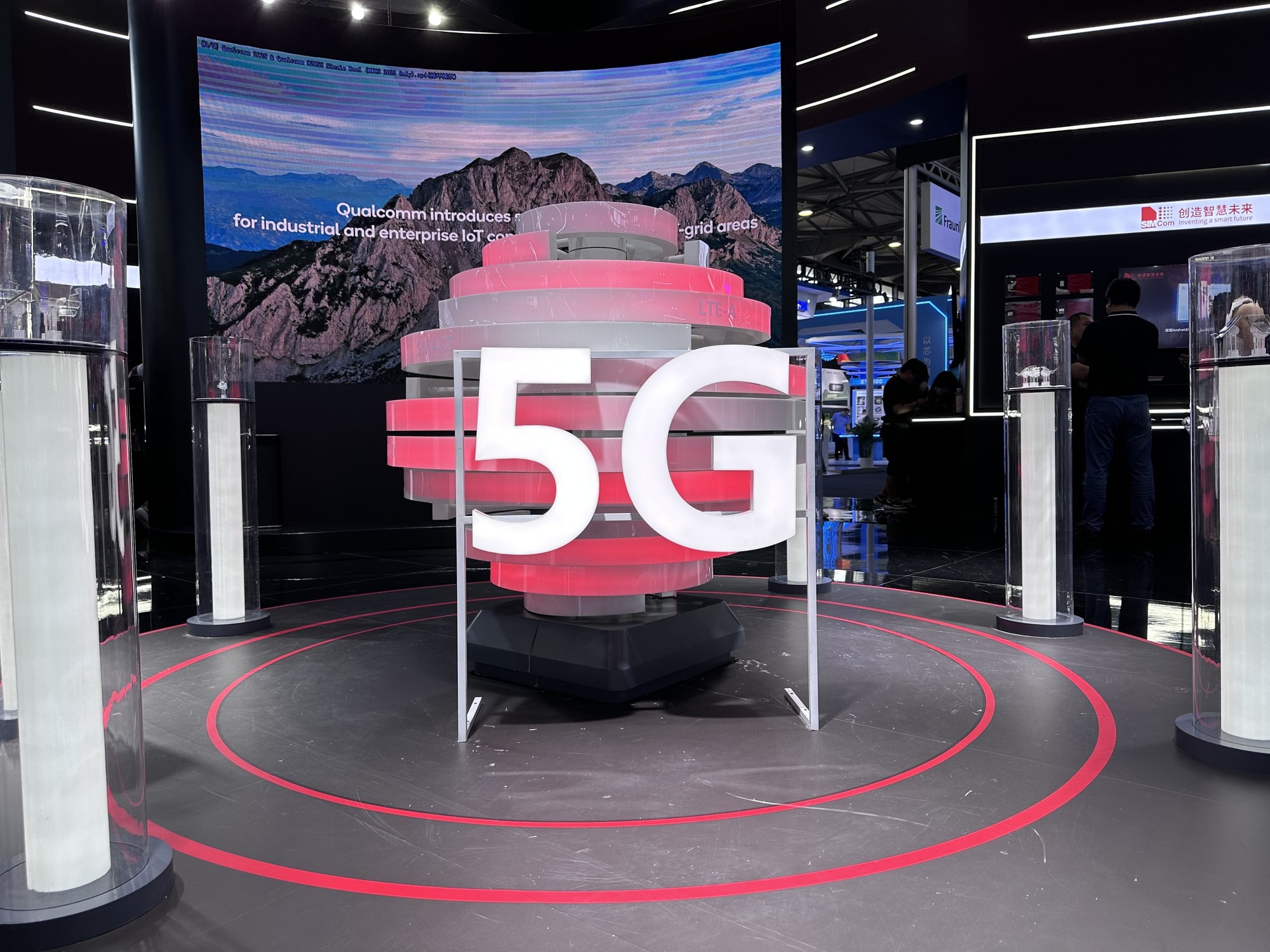
MobiFone plans to commercialize 5G in early 2025, with the goal of covering all provinces and cities across the country. By the end of this year, two network operators have commercialized 5G.
Previously, in April 2024, Viettel successfully auctioned and won ownership of the B1 band (2,500-2,600 MHz), while VNPT won the auction for the C2 band (3,700-3,800 MHz). By July 2024, MobiFone also won the auction for the 3,800-3,900 MHz band.
The nationwide commercialization of 5G helps realize the goal of universalizing national digital infrastructure, promoting the development of digital applications and digital service ecosystems, creating new momentum for economic growth and increasing labor productivity. It is forecasted that by 2030, 5G will bring Vietnamese network operators a revenue of 1.5 billion USD. In 2025, 5G is likely to contribute to Vietnam's GDP growth of 7.3-7.4%.
Merging the Ministry of Information and Communications and Science and Technology
The merger of the Ministry of Information and Communications with the Ministry of Science and Technology is an important step in the digital transformation revolution and streamlining of the political system's organizational apparatus. The goal of this merger is to perfect the multi-sectoral, multi-field management organizational model according to Resolution No. 18-NQ/TW of the Party, while at the same time making reasonable adjustments to the division of state management, overcoming overlaps and interference in functions and tasks between ministries and ministerial-level agencies.

Minister of Information and Communications Nguyen Manh Hung emphasized that the merger of the two ministries will benefit the country and the industry. The two ministries will merge to form a stronger apparatus, promoting digital transformation more effectively. After the merger, the new ministry and new departments will have a better position and role, becoming important and indispensable multi-sectoral agencies of the country.
National data strategy
On February 2, Deputy Prime Minister Tran Luu Quang signed Decision No. 142/QD-TTg approving the National Data Strategy to 2030. This strategy aims to have 100% of national, regional and area data centers, as well as national centers for big data storage and high-performance computing nationwide successfully connected by 2030. This will create a network to share computing and big data processing capacity, serving the country's economic, social and cultural development.
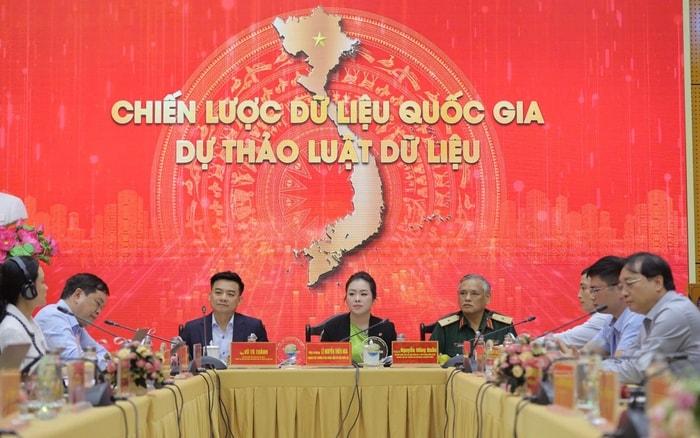
Government cloud computing platforms and Make in Vietnam mobile applications will ensure 100% of Vietnam's data storage, collection, connection and sharing needs are met. At the same time, the strategy also ensures information security, network security and information confidentiality in accordance with the Law on Network Information Security.
The strategy also sets a target that 100% of national databases in the priority list will be digitized, updated and put into effective use. These databases will be connected and shared with the consolidated data warehouse at the National Data Center and nationwide.
Digital Infrastructure Strategy
On October 9, the Prime Minister approved Decision No. 1132/QD-TTg on the Digital Infrastructure Strategy to 2025 and vision to 2030. This strategy aims to universalize fiber optic cables to households; 100% of provinces, cities and high-tech zones have 5G mobile services; deploy at least 2 new international submarine fiber optic cables; develop data centers that support Artificial Intelligence (AI); each person will have 1 IoT connection and 1 digital identity.

Vietnam will develop digital technology platforms such as IoT, artificial intelligence, blockchain and big data, and put into operation at least two new international submarine optical cable lines. By 2030, the goal is to cover 99% of the population with 5G mobile network, test the 6G network, develop six new international submarine optical cable lines, and increase the submarine optical cable capacity to at least 350 Tbps. At the same time, Vietnam will build hyperscale data centers and support the development of regional data centers, bringing the number of IoT connections in Vietnam to the high average level in the world.
Decree on management and use of Internet services
On November 9, the Prime Minister signed and issued Decree No. 147/2024/ND-CP on the management, provision and use of Internet services and online information, replacing Decree No. 72/2013/ND-CP and Decree No. 27/2018/ND-CP. This Decree applies to domestic and foreign organizations and individuals involved in the management, provision and use of Internet services and online information.
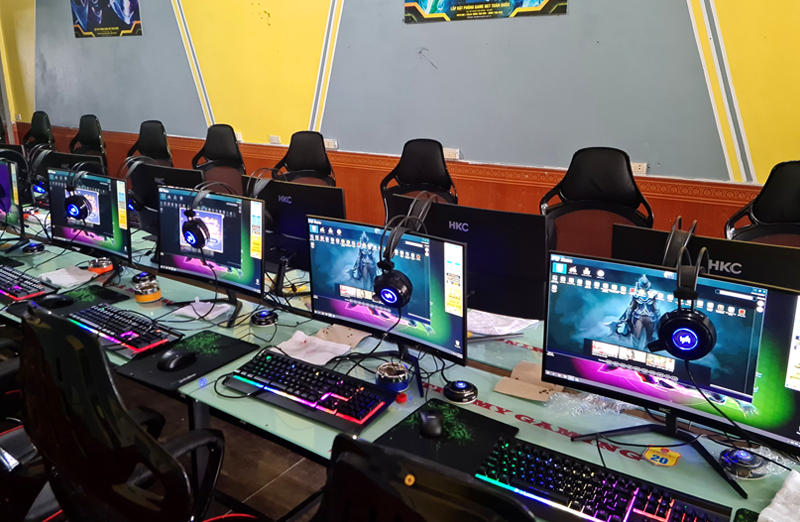
The Decree sets out detailed regulations on the rights and obligations of organizations and individuals participating in the provision and use of Internet services. At the same time, it establishes measures to protect personal information, prevent harmful information and handle violations. Domestic and foreign digital platforms are responsible for complying with Vietnamese regulations, including storing data and providing user information when legally requested.
This Decree also emphasizes the coordination between state agencies, businesses and the community in ensuring a safe and healthy Internet environment, promoting the development of the digital economy. The issuance of the Decree is expected to create a clear and transparent legal corridor, while enhancing Vietnam's competitiveness in the international arena in the field of information technology.
Semiconductor industry development strategy
On September 21, Prime Minister Pham Minh Chinh signed Decision No. 1018/QD-TTg promulgating the Strategy for the development of Vietnam's semiconductor industry to 2030 and vision to 2050. In phase 1 (2024 - 2030), Vietnam aims to become one of the global semiconductor human resource centers, forming basic capacity in all stages from research, design, production, packaging and testing of the semiconductor industry. The revenue scale of the semiconductor industry in Vietnam is expected to reach over 25 billion USD/year.
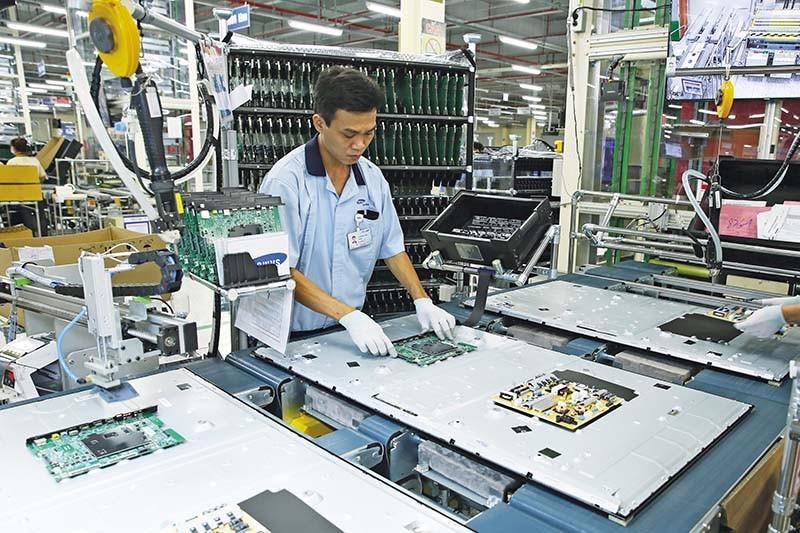
In phase 2 (2030 - 2040), Vietnam will become one of the global centers of semiconductor and electronics industry, developing the semiconductor and electronics industry combining self-reliance and FDI. The scale of semiconductor industry revenue in Vietnam is expected to reach over 50 billion USD/year.
By phase 3 (2040 - 2050), Vietnam will become one of the world's leading countries in the semiconductor and electronics industry, mastering research and development in the semiconductor and electronics fields. By 2050, the revenue scale of the semiconductor industry in Vietnam is expected to reach over 100 billion USD/year; the revenue scale of the electronics industry in Vietnam is expected to reach over 1,045 billion USD/year.
NVIDIA opens two AI research centers
On December 5, 2024, NVIDIA Corporation signed a cooperation agreement with the Vietnamese Government to establish a Research and Development Center (VRDC) and an AI Data Center in Vietnam. VRDC will be one of the three major AI research and development centers in the world, alongside Silicon Valley in the US and another center in Taiwan (China). At the same time, NVIDIA also acquired VinBrain (Vingroup) to develop a design center in Vietnam.
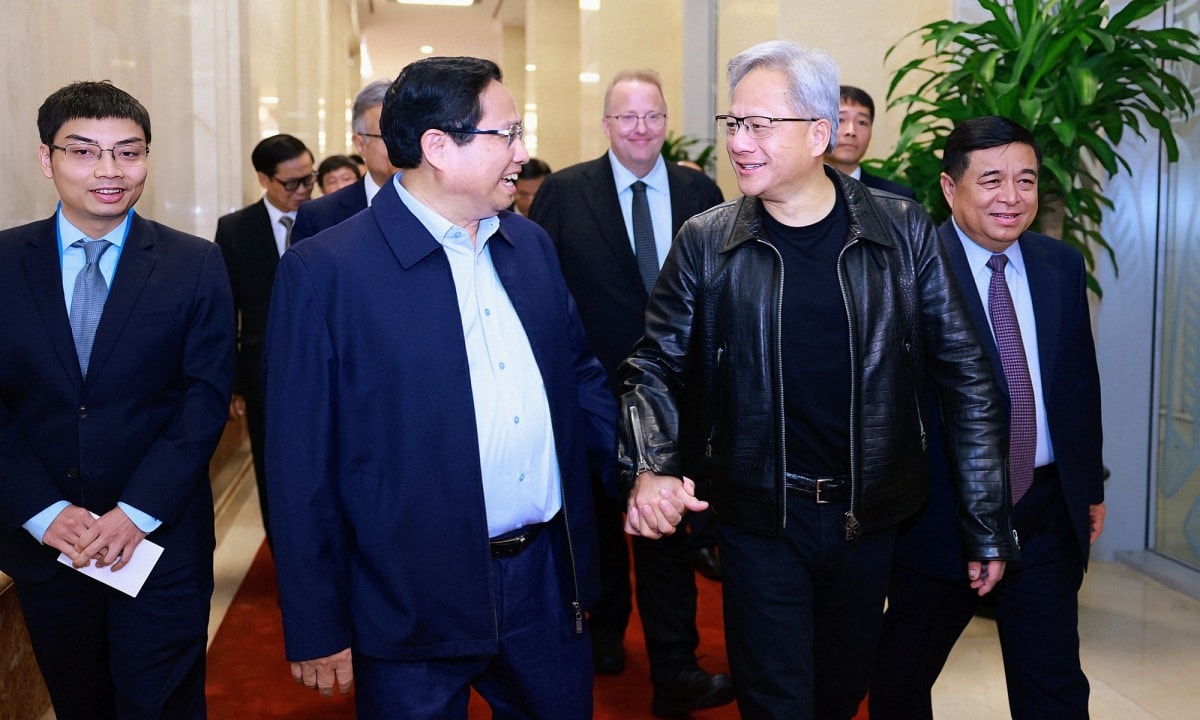
NVIDIA has also signed agreements with several partners to move production chains from other countries to Vietnam, with a commitment to invest between 4-4.5 billion USD in the next 4 years. This will create about 4,000 direct jobs and about 40,000-50,000 indirect jobs in the coming years.
This is an important "push" to help Vietnam make a leap forward in technology, attracting the attention of other high-tech investors in the world, especially in the fields of AI and semiconductors. At the same time, it also helps attract and retain many talents in this field.
According to the Ministry of Planning and Investment, Vietnam currently has 174 FDI projects in the semiconductor sector with a total registered capital of nearly 11.6 billion USD.



.jpg)
.jpg)
